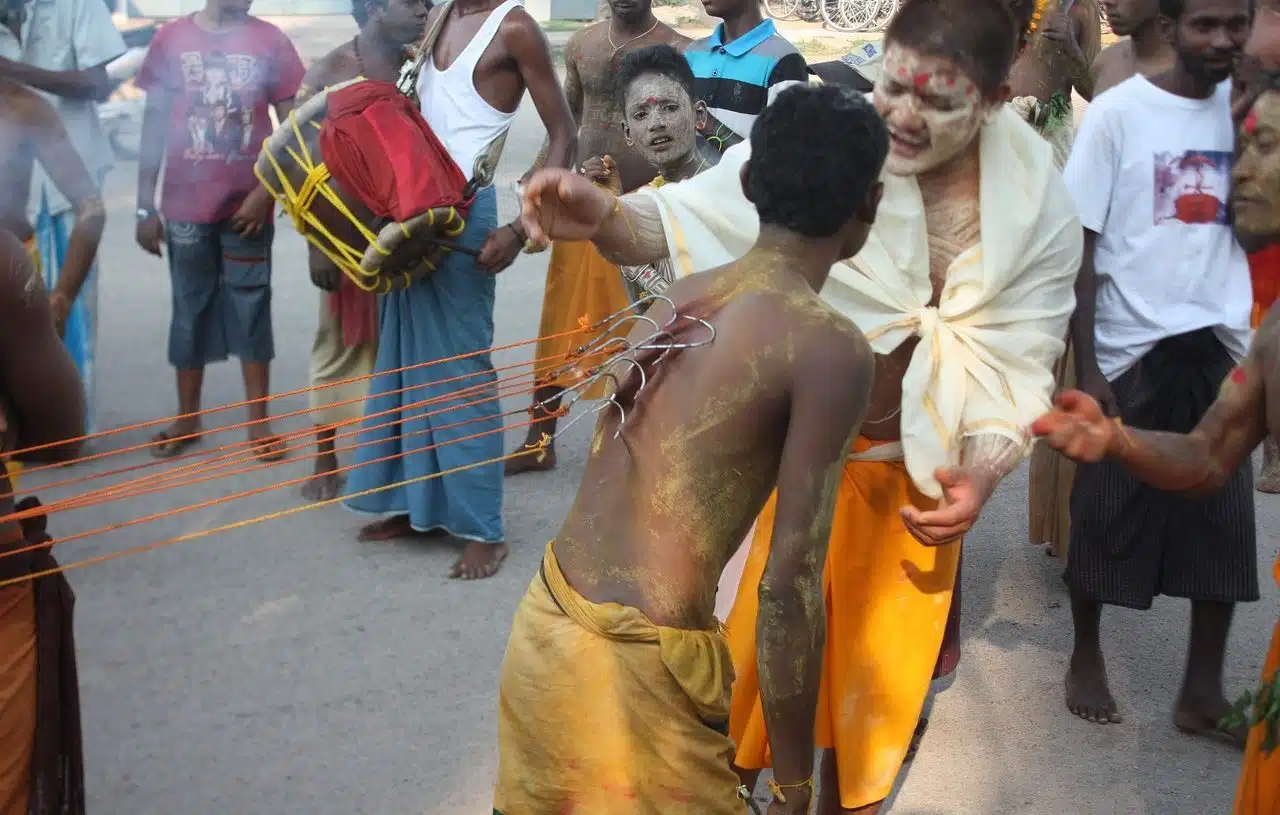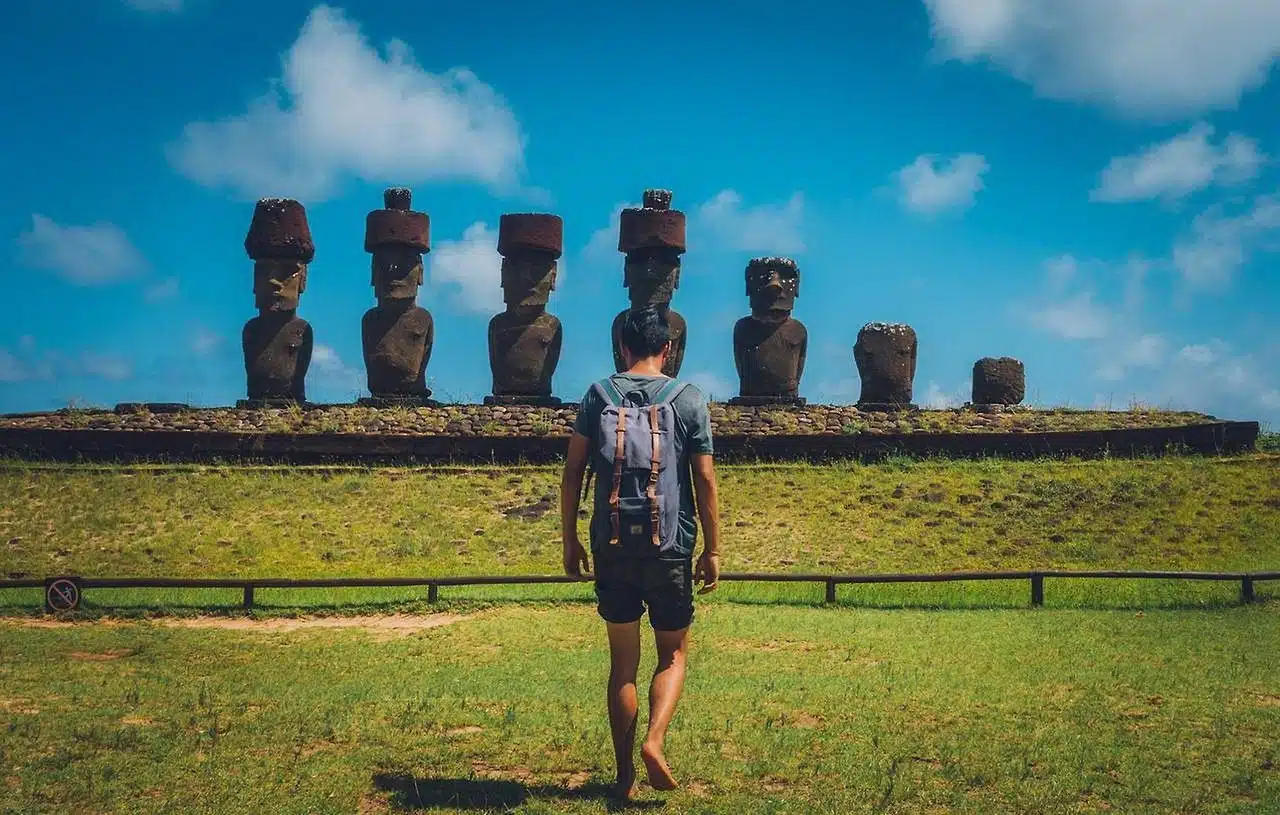
Ritual practices are of interest to anthropology.
Anthropology is the science that is responsible for studying the reality of the human being through a holistic approach (in which the whole determines the behavior of the parts). The term has origins in the Greek language and comes from anthropos ( "man" or "human" ) and logos ( "knowledge" ).
This science analyzes man in the cultural and social context of which he is a part. Thus it analyzes the origin of the human being, its development as a social species and the changes in its behaviors as time passes.
History of anthropology
Georges-Louis Leclerc , in 1749 , is said to have been the first scholar to posit anthropology as an independent discipline. Its development was based on two positions: the study of the various physical characteristics of the human being and the descriptive comparison of different peoples.
However, there are many other anthropologists who, throughout history, have left their indelible mark on this discipline . This would be the case, for example, of Herbert Spencer . He was a very respectable figure within the scientific field who expounded his theories based on concepts such as natural laws, the adaptation of the being to the environment or the transmission of certain factors from generation to generation.

Economic anthropology studies how the economic subject is constructed.
The contributions of Morgan, Harris and other experts
Likewise, the figure of Lewis Henry Morgan cannot be overlooked, who is considered one of the true fathers of modern anthropology. In his case, he stood out because he presented advances and theories on kinship relations that for him were fundamental to ensuring that a group strengthened ties and that the individuals who made it up felt a vital part of it.
To these two characters of great historical, anthropological and philosophical significance we should add, among many others, the name of Marvin Harris . Of North American origin, he is known worldwide for being the key piece of cultural materialism, a theory or current that is fundamentally based on material issues to determine the sociocultural differences or similarities that exist between various groups.
WHR Rivers, Edith Turner,Clifford Geertz,Sherry Ortner y Ulf Hannerz son otros de los muchos antropólogos que durante la history han jugado un papel fundamental en el estudio del ser humano, de sus características individuales y de sus relaciones sociales.

For anthropology, ethnocentrism is the tendency that leads to interpreting the behaviors of another community based on one's own culture.
Branches of anthropology
At the end of World War II , most of the most powerful countries in the world had already managed to develop a professional-level anthropology that allowed them to reinforce their identity as a nation.
Today, anthropology can be divided into four main subdisciplines: social anthropology (also known as cultural anthropology or ethnology , which studies cultural characteristics, behaviors and the structuring of social ties); biological anthropology (or physical anthropology ), which analyzes the changes in the human body over the course of history; linguistic anthropology (or anthropological linguistics ), which specializes in the study of human languages); and archaeology , dedicated to tracing and interpreting the ways of life of those already extinct communities.
It should be noted that paleoanthropology , medical anthropology , urban anthropology , gender anthropology , political anthropology , forensic anthropology and sports anthropology are some of the specializations of this science.
Main features
Anthropology uses ethnography as a qualitative research method. In this way, anthropologists observe and describe various features of a certain community or culture.
What anthropology does is compare various societies , analyzing their customs , traditions, rituals and myths. In this way, he investigates beliefs, ceremonies, festivals and folklore, for example.
Social structure, human migration, writing systems, dialects and cosmologies are just some of the topics of interest for anthropology, whose field research usually resorts to observant participation (the researcher collects data in the natural environment). .
In a broad sense, anthropology provides knowledge about human evolution . Physical anthropologists, within this framework, can study hunter-gatherer clans and tribes and the Neolithic agricultural revolution to examine biological changes. The object of study of anthropology is so broad that it also encompasses multiculturalism driven by the globalization of recent decades, to mention one possibility.
It should be considered, however, that anthropology faces various ethical conflicts in its development. There are those who warn that professionals in this science have greater power than those communities they analyze. That is why it is even often indicated that the practices of anthropology constitute a form of colonialism .
Beyond this type of appreciation, anthropology is a discipline valued for its contributions to the understanding of religion, taboos, gender roles, narratives and power systems, among other issues that affect the identity of peoples. .
